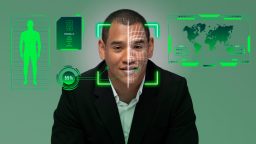Artificial Intelligence (AI) has rapidly transformed many industries, and healthcare is no exception. One of the most exciting developments in the field is how AI is revolutionizing medical diagnoses. From improving the accuracy of diagnosis to speeding up treatment decisions, AI-powered tools are enhancing the way doctors approach healthcare, helping save lives, and making healthcare systems more efficient. In this article, we’ll explore how AI is changing the landscape of medical diagnoses and what this means for patients and healthcare professionals.
- AI and Early Detection
One of the most significant ways AI is revolutionizing medical diagnoses is through early detection. AI algorithms can analyze vast amounts of medical data and identify patterns that are often invisible to the human eye. For example, in radiology, AI tools can examine medical images, such as X-rays, MRIs, and CT scans, to detect abnormalities like tumours, fractures, or signs of diseases such as cancer or pneumonia.
Machine learning models, trained on thousands or even millions of medical images, can often detect early signs of disease more accurately than human radiologists. AI can spot subtle changes in tissue or structure that might be missed during a manual review. Early detection is crucial for effective treatment and improved patient outcomes, as diseases like cancer have a much higher chance of being treated successfully when caught in their early stages.
- Enhancing Diagnostic Accuracy
AI systems have the ability to process and interpret large volumes of data from multiple sources, including medical imaging, patient history, and genetic information. By analyzing this data, AI can help doctors make more accurate diagnoses and avoid errors caused by human limitations.
For instance, AI-powered diagnostic tools have demonstrated promising results in diagnosing conditions such as diabetic retinopathy, heart disease, and skin cancer. AI can analyse retinal scans to detect signs of diabetic eye disease, identify irregular heart rhythms in ECGs, and even analyse images of skin lesions to assess the risk of melanoma. These systems provide healthcare providers with more data-driven insights, leading to improved diagnostic accuracy.
- Personalized Treatment Plans
AI is also helping doctors move away from a one-size-fits-all approach to healthcare. Instead of relying solely on standard treatments, AI can analyze a patient’s unique medical history, genetic information, and lifestyle factors to recommend personalized treatment plans.
In oncology, for example, AI can assess genetic data from a patient’s tumour to identify specific mutations and suggest targeted therapies that are more likely to be effective. AI can also track how patients respond to treatment over time, adjusting the treatment plan as needed based on real-time data. This level of personalization helps ensure that patients receive the most appropriate and effective care for their specific condition.
- Predicting Disease Progression
AI can go beyond diagnosing current conditions by helping doctors predict how diseases will progress over time. Machine learning algorithms can analyse patient data and identify risk factors that might indicate the likelihood of disease progression. This allows healthcare providers to intervene earlier and adjust treatment plans proactively.
For example, AI tools are being developed to predict the progression of diseases like Alzheimer’s, Parkinson’s, and multiple sclerosis. By analyzing data from brain scans, cognitive tests, and patient history, AI can estimate how a disease might evolve and help doctors make better-informed decisions about treatment and care.
- Reducing Diagnostic Time
In many medical settings, time is critical. Quick and accurate diagnoses are vital for ensuring that patients receive the right treatment promptly. AI can help expedite the diagnostic process, reducing the time it takes to identify and treat medical conditions.
For example, in emergency departments, AI algorithms can be used to triage patients based on their symptoms and medical history. AI can help identify which patients require immediate attention, speeding up the decision-making process. Additionally, AI can assist doctors by providing suggestions or flagging potential diagnoses that might otherwise have been overlooked, reducing delays in diagnosis and treatment.
- Empowering Remote Healthcare
Telemedicine has become increasingly popular, especially during the COVID-19 pandemic, and AI is playing a key role in supporting remote healthcare services. AI-powered diagnostic tools allow healthcare providers to assess patients remotely, making it easier to provide care for individuals in underserved or rural areas, where access to healthcare might be limited.
AI can assist in analysing patient data from wearable devices, such as heart rate monitors or glucose trackers, to assess a patient’s condition without requiring an in-person visit. These tools can help doctors monitor patients remotely and provide real-time insights into their health, making it easier to manage chronic conditions or detect problems early.
- AI and Clinical Decision Support
AI can act as a powerful decision-support tool for doctors, offering recommendations based on data and helping them make better-informed clinical decisions. By analysing clinical guidelines, research papers, and patient data, AI systems can suggest the most effective courses of treatment or identify potential complications based on the patient’s condition.
Clinical decision support systems (CDSS) that use AI algorithms can alert healthcare providers about potential issues, such as drug interactions, allergies, or unusual lab results. These systems can also help identify patterns that might not be immediately obvious, leading to more accurate and timely decisions.
- Overcoming Healthcare System Challenges
AI is not just improving individual diagnoses; it is also helping address broader challenges in healthcare systems. AI can assist in managing healthcare resources more efficiently, reducing costs, and improving patient flow within hospitals. For example, AI systems can predict patient admissions, optimize staffing schedules, and streamline supply chain management, helping healthcare institutions run more smoothly.
AI can also be used to predict disease outbreaks, analyse population health trends, and manage healthcare records more effectively. By leveraging AI, healthcare systems can become more proactive, data-driven, and cost-efficient, leading to better outcomes for both patients and providers.
Final Thoughts
AI is fundamentally transforming medical diagnoses, offering faster, more accurate, and more personalized care for patients. By assisting healthcare professionals in detecting diseases earlier, enhancing diagnostic accuracy, and predicting disease progression, AI is improving both the efficiency and effectiveness of healthcare delivery. As AI technology continues to advance, its role in healthcare will only become more significant, helping doctors provide better care and ultimately saving lives. While challenges remain, particularly in ensuring the ethical use of AI in medicine, the potential benefits for patient outcomes are immense, making AI a game-changer in the world of healthcare.





